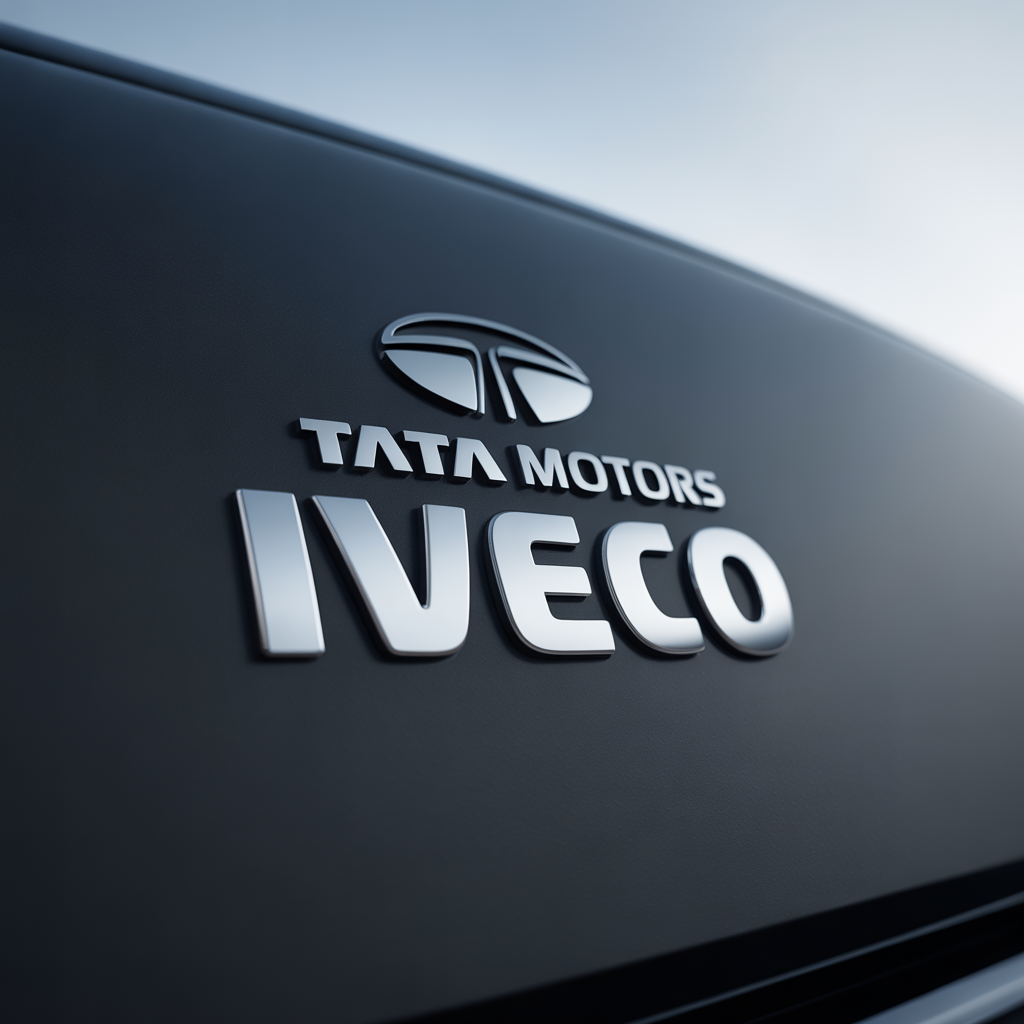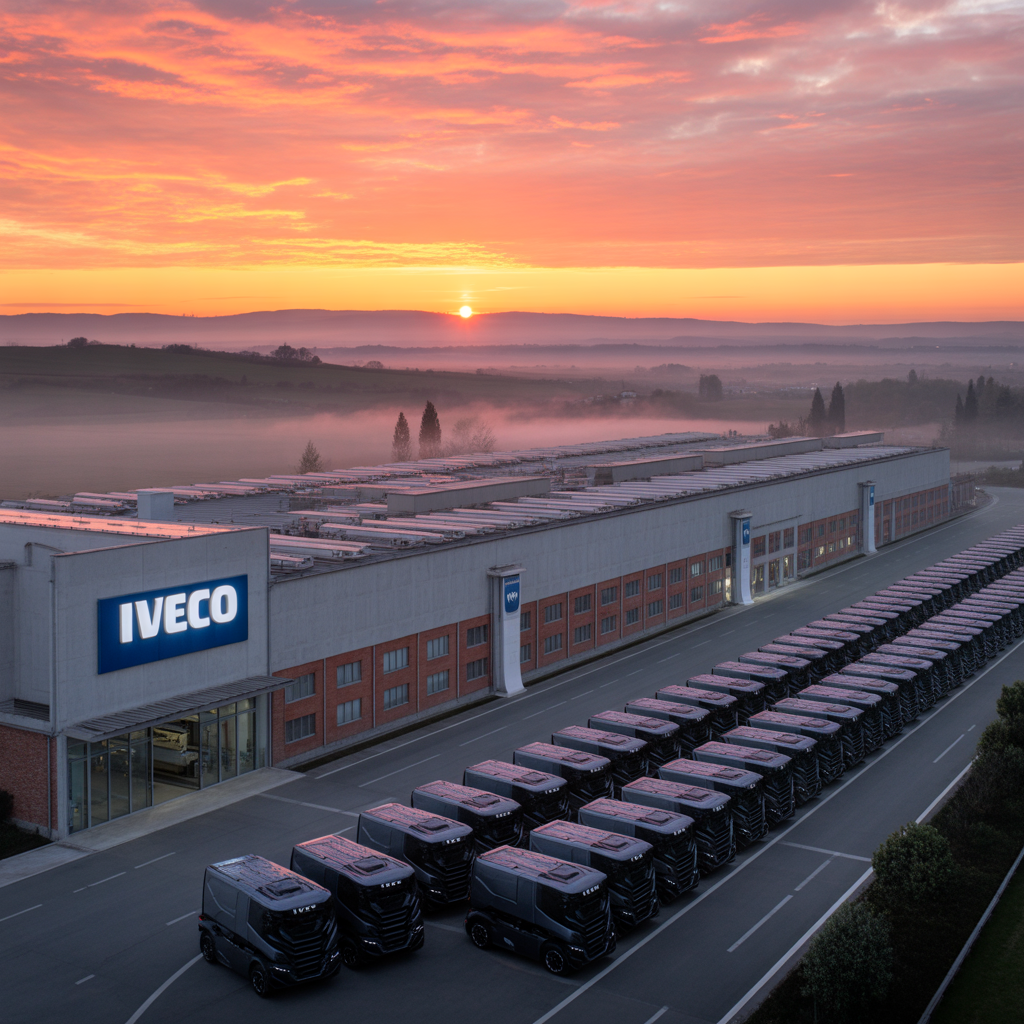Tata Motors Iveco acquisition marks a significant milestone for the Indian automaker’s ambitions to become a global commercial vehicle powerhouse. Officially announced on July 30, 2025, Tata Motors is set to acquire Italian commercial vehicle manufacturer Iveco, with plans to raise €1 billion in equity to partially finance the deal. This acquisition is expected to close by April 2026, combining two industry leaders and creating an entity with over €21 billion in annual revenue.
What is the Tata Motors Iveco Acquisition About?
The Tata Motors Iveco acquisition brings together two prominent players in the commercial vehicle market. Tata Motors, one of India’s largest automotive manufacturers, is expanding its footprint beyond domestic borders by acquiring Iveco, a leading Italian manufacturer known for heavy-duty trucks, buses, and alternative fuel vehicles.
- Deal Type: Acquisition
- Target Company: Iveco Group (Italy)
- Estimated Equity Raise: €1 billion
- Expected Closure: April 2026
- Combined Revenue Projection: Over €21 billion annually
This move enables Tata Motors to penetrate the European and Latin American markets deeply, leveraging Iveco’s established manufacturing base and technological expertise in commercial vehicles and alternative fuels.
Source: Tata Motors Official Announcement
Why the Acquisition is a Game-Changer

1. Expanding Global Reach
Iveco operates in more than 160 countries, with manufacturing hubs across Europe, South America, and Africa. Tata Motors will gain immediate access to these markets, accelerating its international growth strategy.
2. Advanced Research & Development Synergies
Both companies have robust R&D facilities focusing on electric vehicles (EVs), hydrogen fuel cell technology, and compliance with increasingly stringent global emission norms. The merger will pool resources to develop next-generation clean commercial vehicles.
3. Operational Efficiency
Integrating logistics, supply chain management, and service networks will reduce costs and improve efficiency, enhancing competitiveness.
4. Strengthened Product Portfolio
Combining Iveco’s range of heavy-duty trucks and buses with Tata’s products allows the new entity to offer a wider product range, meeting diverse customer needs worldwide.
Financial Impact and Market Reaction
Following the announcement, Tata Motors shares rose by 3.8% on the Bombay Stock Exchange, reflecting growing investor confidence in the deal’s potential. Furthermore, analysts from Motilal Oswal and Kotak Institutional Equities expect the acquisition to be accretive to earnings by 2027. Given the success of Tata’s previous global acquisition, Jaguar Land Rover (JLR), the market remains optimistic about effective integration.
In fact, Ravi Dubey, Auto Sector Head at Axis Capital, commented:
“This acquisition marks Tata Motors’ transition into a global leader in commercial vehicles, not just an Indian automaker.”
About Iveco: The Italian Commercial Vehicle Giant

Founded in 1975, Iveco is headquartered in Turin, Italy, and is publicly listed on the Borsa Italiana (borsaitaliana.it). It is renowned for its:
- Heavy-duty trucks and logistics vehicles
- Urban and long-distance buses
- Alternative fuel and electric powertrains
- Defence and emergency vehicles
In fiscal year 2024, Iveco reported revenues of approximately €13.5 billion, underscoring its substantial presence in the global commercial vehicle market.
Source: Iveco Corporate Website
About Tata Motors: India’s Automotive Powerhouse

Tata Motors Limited, part of the Tata Group, is one of India’s largest automotive manufacturers and a key player in the global commercial vehicle industry. Founded in 1945 and headquartered in Mumbai, Tata Motors produces a wide range of vehicles including passenger cars, trucks, buses, and military vehicles. The company has a strong presence in India and international markets, with subsidiaries such as Jaguar Land Rover and a growing footprint in electric vehicle technology. Tata Motors has been steadily expanding its global operations through strategic acquisitions and partnerships, positioning itself as a leader in sustainable and innovative mobility solutions. In the fiscal year 2024, Tata Motors reported consolidated revenues of approximately ₹3.68 trillion (about €44 billion), highlighting its significant scale and influence in the automotive sector.
Strategic Objectives Behind the Acquisition
The Tata Motors Iveco acquisition fits into a broader strategic framework to:
- Reduce dependency on the Indian commercial vehicle market.
- Leverage Iveco’s European R&D hubs for accelerated innovation.
- Expand Tata’s electric vehicle lineup using combined platforms.
- Offer competitive clean mobility solutions in logistics and public transport.
What’s Next in the Tata Motors Iveco Acquisition Journey?
The transaction is currently awaiting regulatory approvals from authorities in India and the European Union. Tata Motors aims to complete the process by early Q1 2026.
Legal and financial due diligence is being conducted with support from Rothschild & Co and AZB & Partners advising Tata Motors, while Iveco is advised by JP Morgan and BonelliErede.
Post-approval, integration will focus on aligning operational processes, combining product lines, and maximizing R&D collaboration.
Girish Wagh, Executive Director of Tata Motors, said:
“Iveco complements Tata Motors perfectly, and together we will set new standards in commercial vehicle manufacturing worldwide.”
Potential Challenges and Industry Outlook
Despite strong prospects, the acquisition faces some challenges:
- Regulatory scrutiny from multiple jurisdictions due to the size of the deal.
- Cultural and operational integration risks between Indian and European corporate practices.
- Global supply chain disruptions and rising raw material costs could affect near-term profitability.
However, the acquisition signals growing confidence in cross-border consolidation in the automotive sector and highlights India’s rising role in global industrial growth.
Looking Ahead: Shaping the Future of Global Commercial Mobility
As Tata Motors and Iveco progress towards completing their merger, the combined entity is poised to become a global leader in sustainable and innovative commercial vehicles. Both companies have committed to accelerating electric vehicle adoption and developing hydrogen fuel technologies, which clearly reflects a shared vision for greener transportation solutions.
Moreover, industry experts widely believe this acquisition could significantly reshape global supply chains and strengthen India’s footprint in the international automotive sector. With expanding markets in Europe, Latin America, and beyond, Tata Motors’ strategic move aligns well with broader trends in clean mobility and smart logistics.
Consequently, investors and stakeholders will be watching closely as Tata Motors leverages Iveco’s technological expertise and market reach to meet the evolving demands of the commercial vehicle industry. Furthermore, this partnership opens new avenues for collaborative research and development, thereby enhancing innovation potential.
Ultimately, the successful integration of these two companies could set new standards for innovation, efficiency, and global collaboration. In addition, it may encourage further cross-border partnerships in the automotive sector, fostering growth and competitiveness worldwide.




